Tread Labs Dover RS review: support-first hiking shoes built around the insole
The Dover RS delivers real arch support but sacrifices breathability and speed, for weight, durability, and traction.
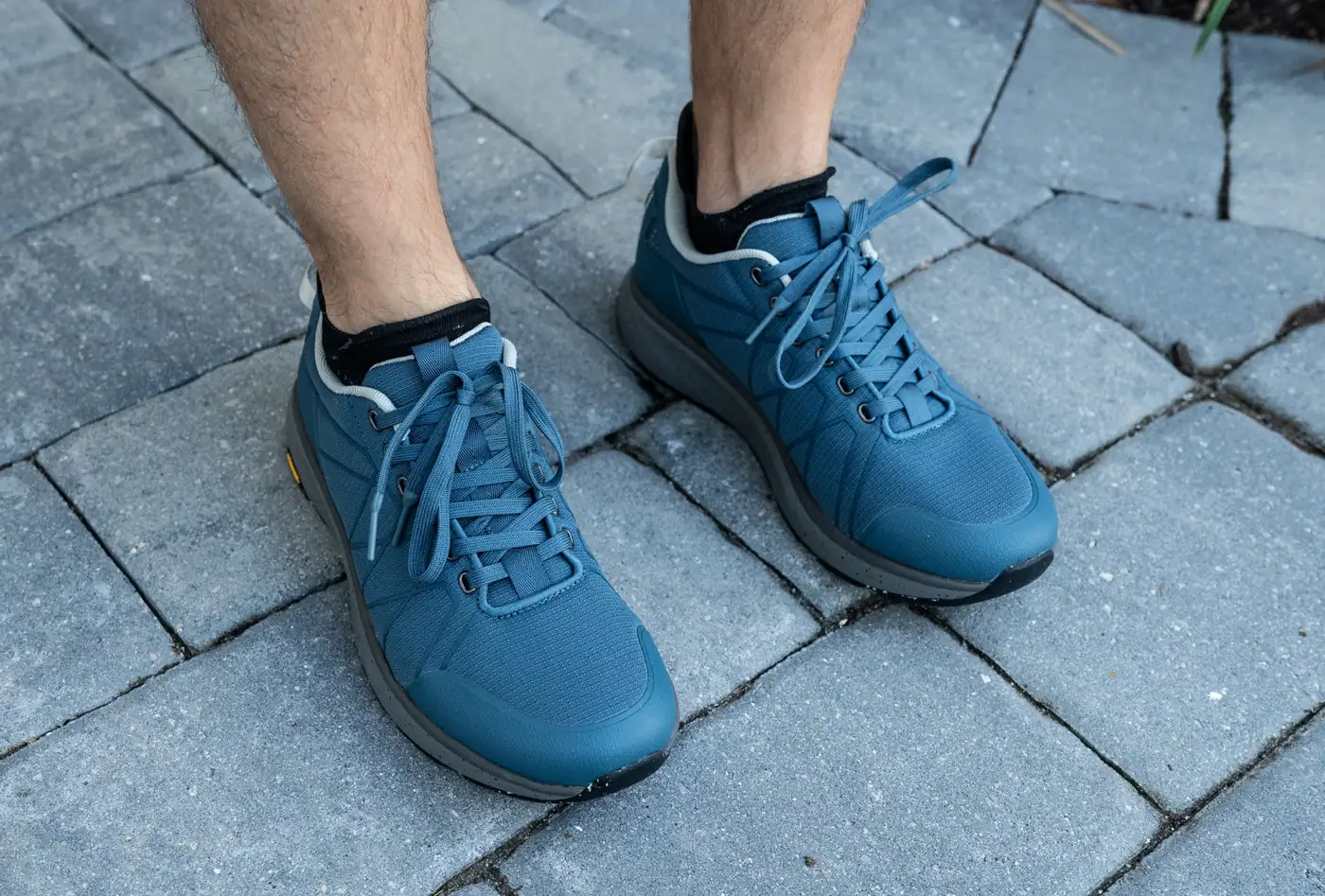
The Tread Labs Dover RS is designed as a trail-ready hiking shoe that prioritizes support over lightweight speed. While many modern trail shoes take cues from running footwear, the Dover RS leans hard into its hiking DNA.
Built around Tread Labs’ Pace Insole system, the Dover RS puts structured arch support at the core of its design. But does that level of support and the stiff, more traditional hiking feel work on the trail?
After testing them, I’ve got some thoughts.
Key specifications
- Price:
$155 at treadlabs.com - Weight: 13.8oz (391g), men’s US 9
- Drop / Stack height: 8mm drop (36mm heel / 28mm forefoot)
- Upper: Polyester ripstop with spacer mesh lining for durability and airflow
- Midsole: EVA foam for cushioning and shock absorption
- Outsole: Vibram EcoStep Recycled EVO rubber for long-lasting traction
- Extra attributes:
- Built-in Tread Labs Pace orthotic insole (APMA-certified, medium arch by default)
- TPU toe and heel caps for protection
- 30-day fit guarantee + lifetime insole warranty
Sizing and fit
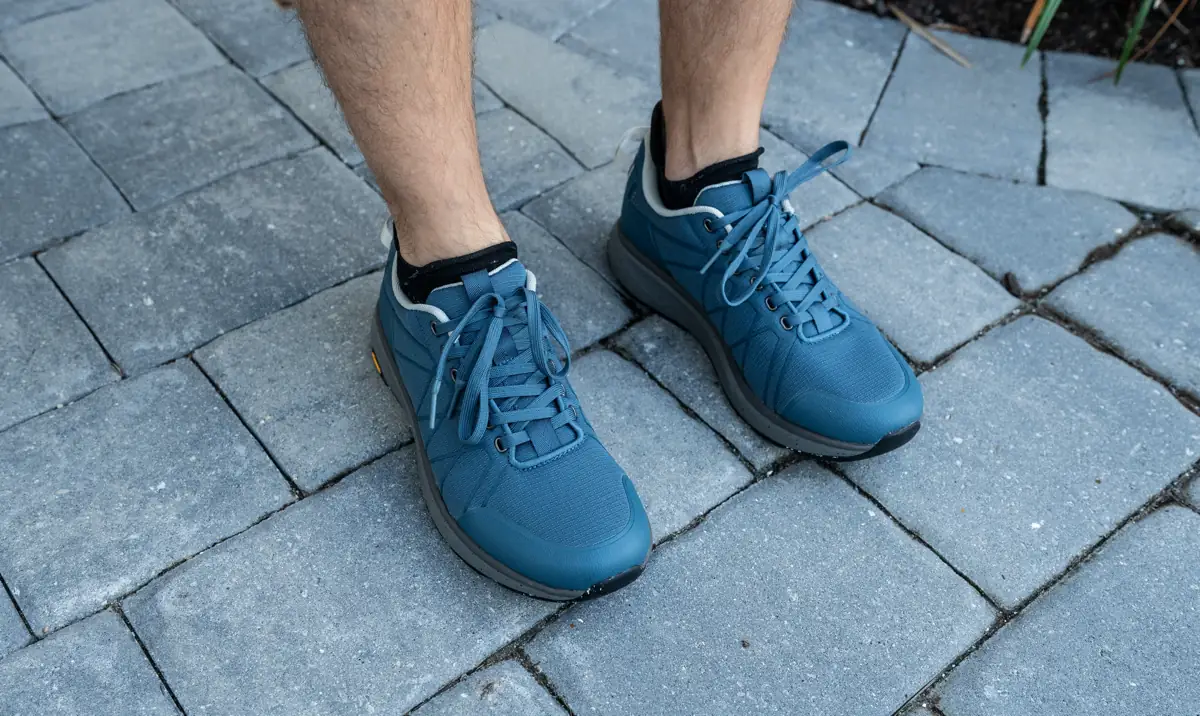
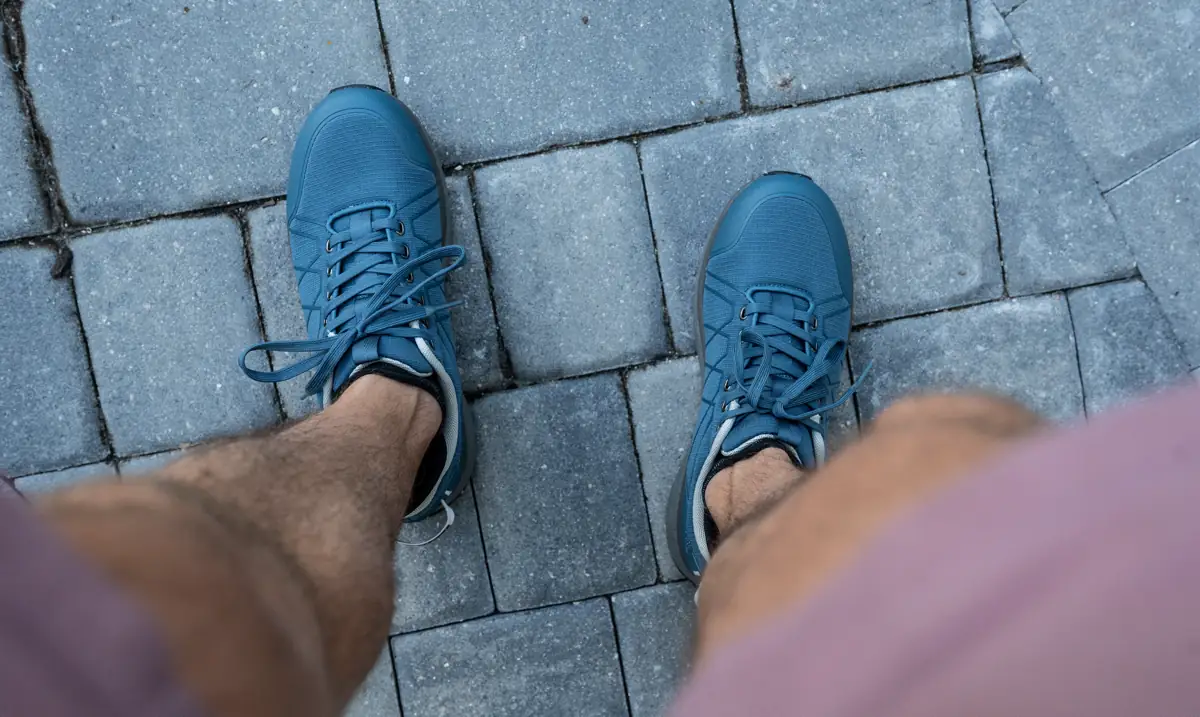
The Dover RS fits true to size, and has a medium width but the built-in arch support is the most noticeable feature for me when it comes to step in feel.
If you’re not used to shoes with strong structure underfoot, the default medium-arch insole may feel a little overwhelming.
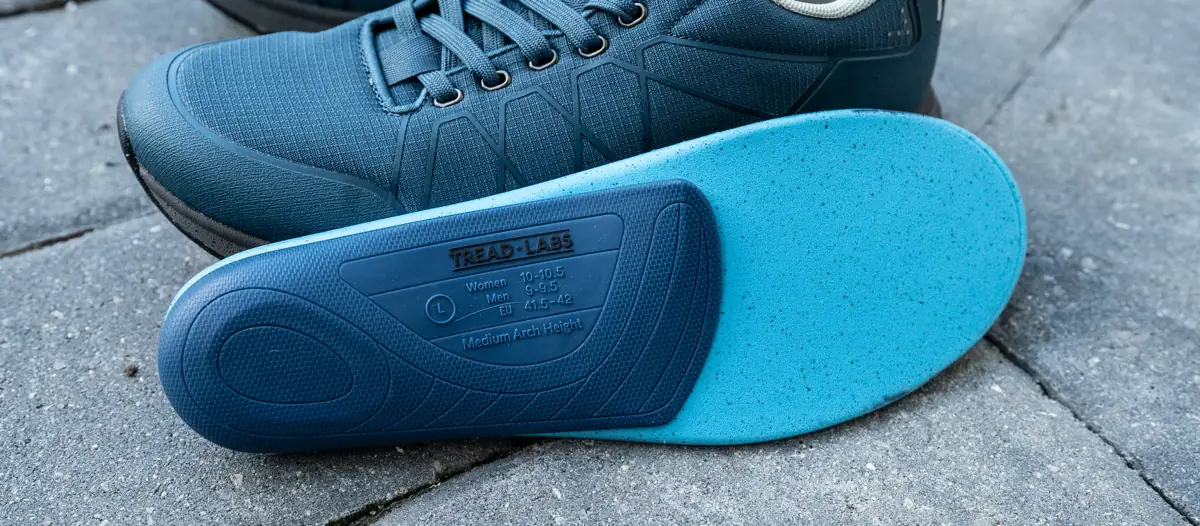
The good news is that Tread Labs designs its shoes around these insoles, so you can swap them out easily for a lower (or higher) arch option that better matches your needs.
The collar walls, heel counter and tongue are all very padded and create a secure fit with a solid heel lockdown when on the move.
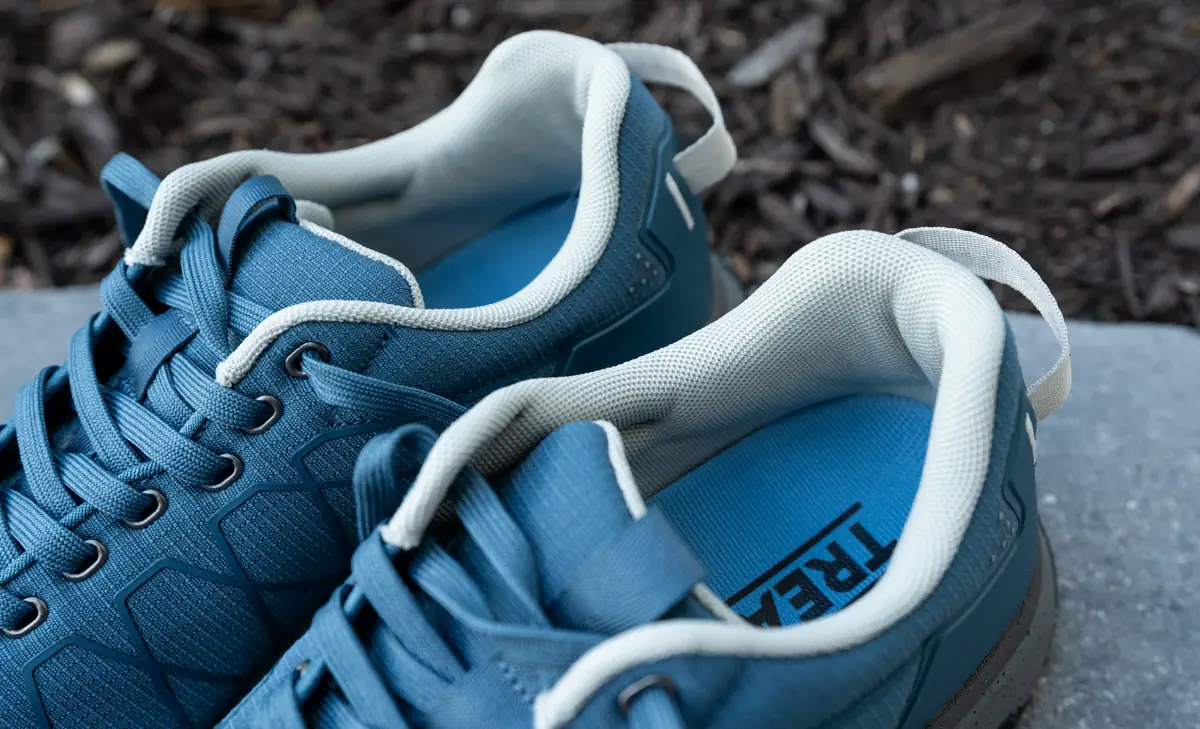
Performance review
On foot, the Dover RS feels more like a traditional hiking shoe than a modern “all-mountain” trail runner.
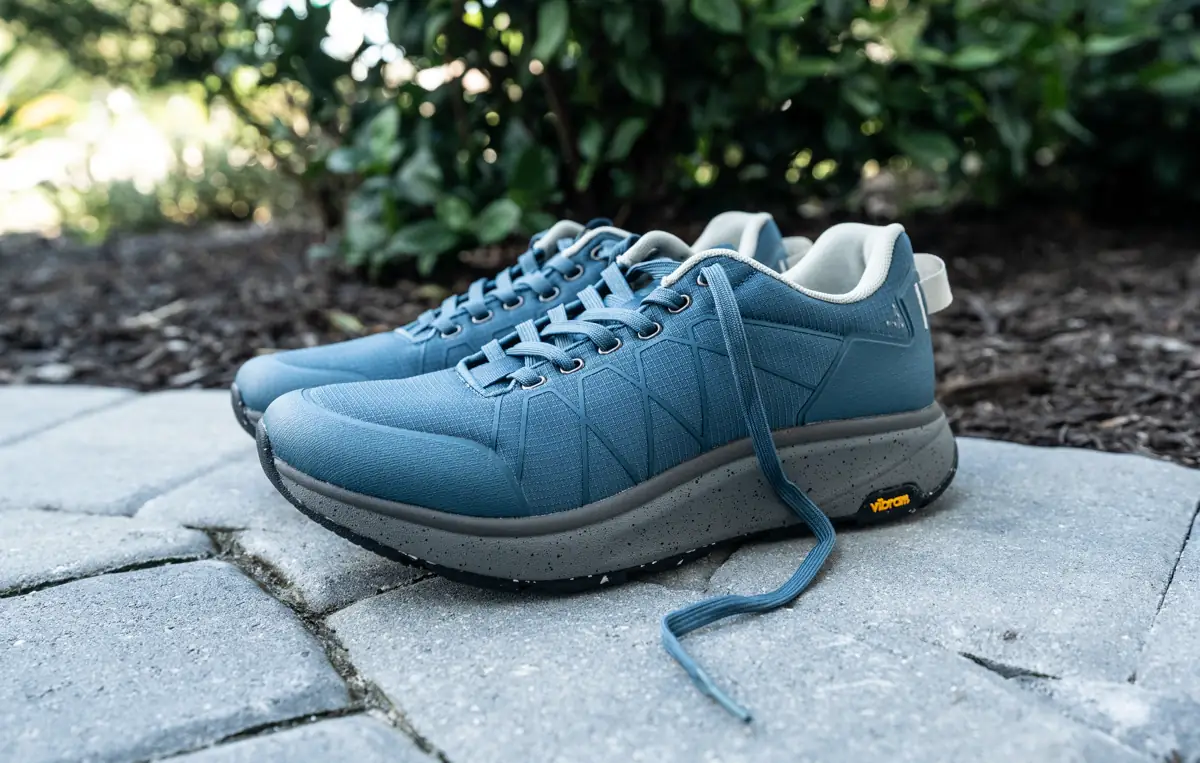
That means a couple of things. First, they’re heavy compared to lightweight trail shoes, and you notice that extra heft once you get moving.
They also have a stiff upper, durable for sure, but lacking the flexibility and comfort you’d expect from a run-inspired hybrid.
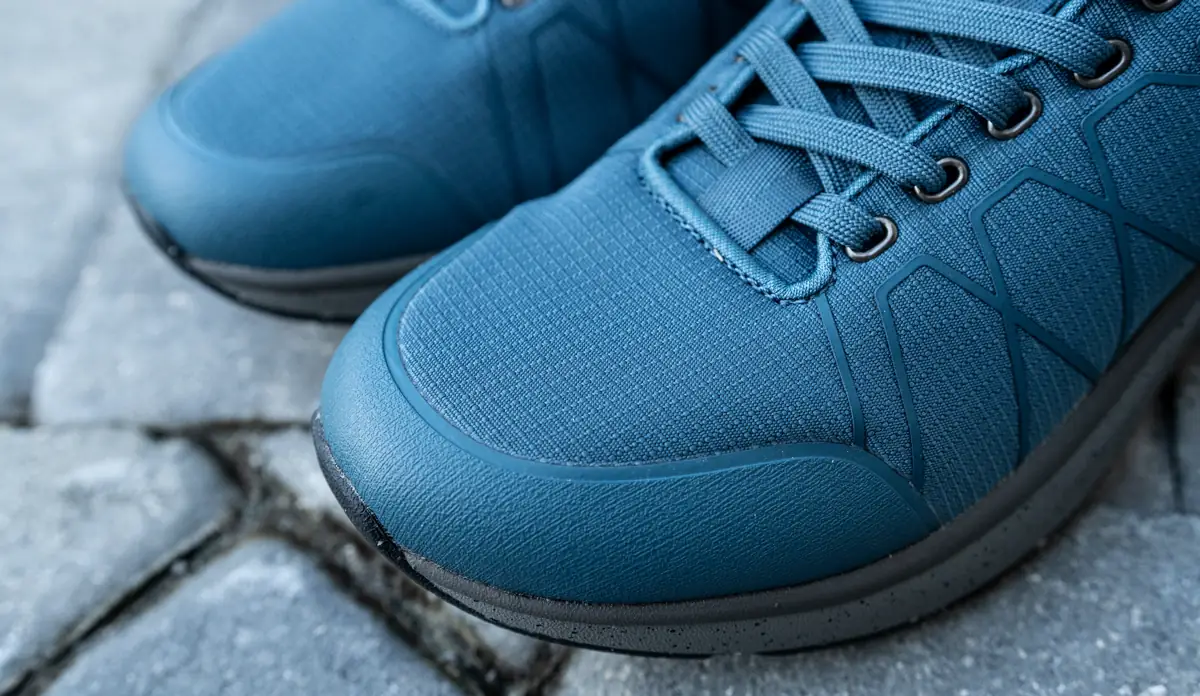
Breathability isn’t great either. Despite the brand’s claim of airflow through the ripstop and mesh lining, they run hot, which could be an issue on warm-weather outings; thankfully this one was released just in time for Fall/Winter weather.
Where the Dover RS performs best is in support, stability, and traction.
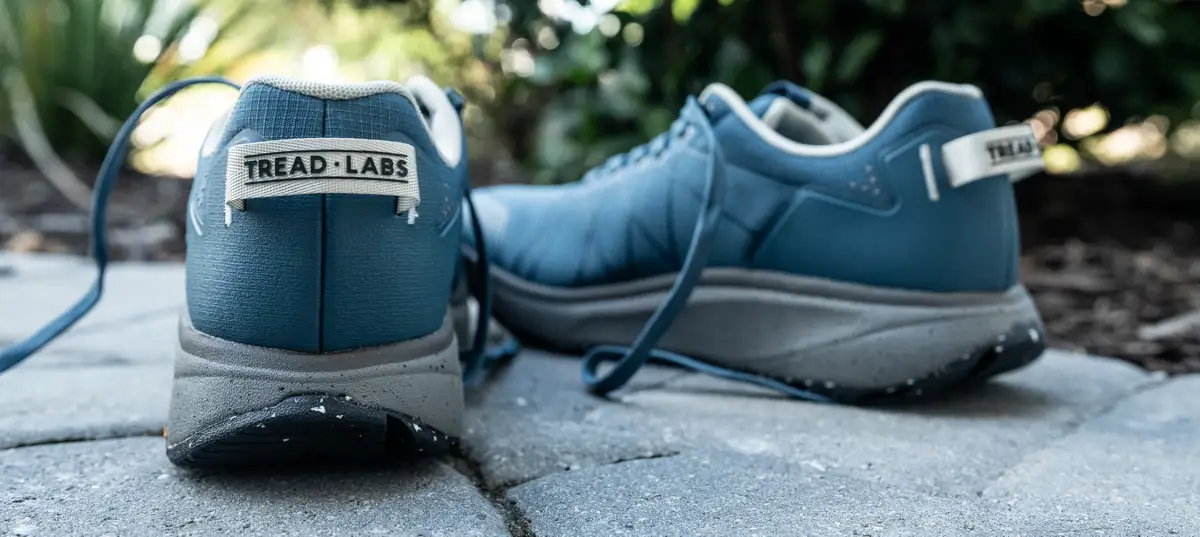
The standard Pace insole offers a lot of arch structure, arguably too much for most runners or hikers. But for people who need that kind of alignment and control, it’s rare to find it built so centrally into a shoe.
And for those who don’t, the modular insole system makes swapping to something more comfortable straightforward. That’s the Dover’s differentiator: the shoe starts from the insole out.
On uneven ground, that support translates into a secure, planted feel.
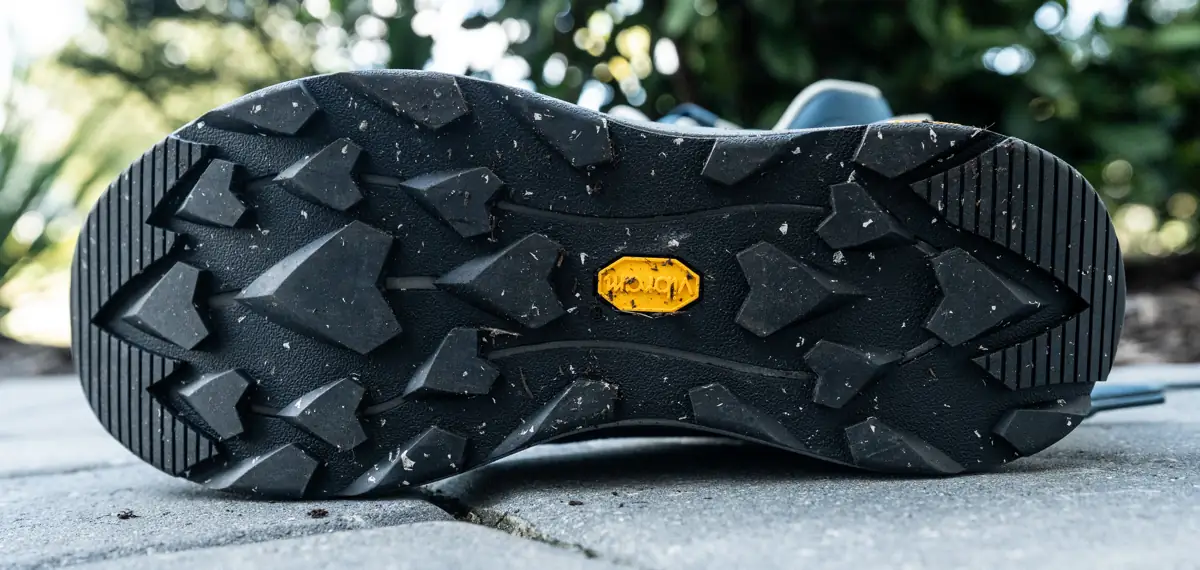
The Vibram outsole grips well, and the wide platform adds confidence.
Overall, the Dover RS feels designed for slower, steady hiking miles rather than fast hiking or trail running.
If you want something nimble and breathable for mixed terrain, there are lighter, more flexible options out there.
If you want a stiffer, supportive shoe that doubles as a workhorse for people with specific arch needs, the Dover is in its lane.
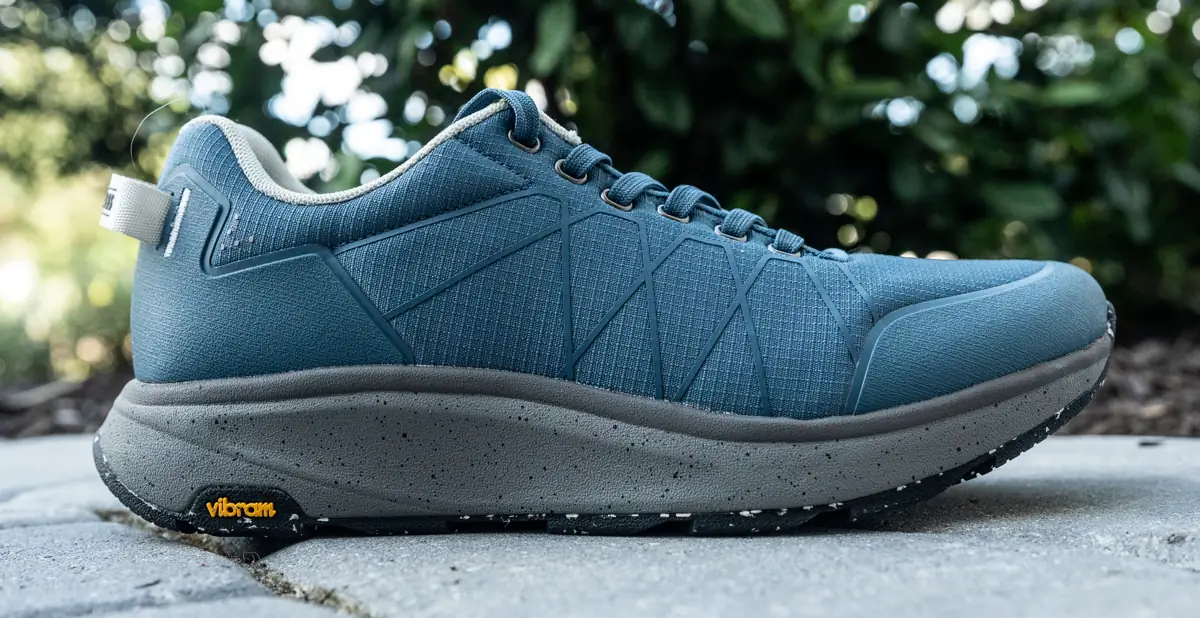
My verdict
The Tread Labs Dover RS isn’t pretending to be a lightweight, do-everything trail shoe.
It’s unapologetically a support-first hiking shoe built on the Pace Insole system.
That makes it a great match for hikers who struggle to find footwear with enough arch structure, and a tricky fit for those who prefer a softer, more flexible feel.
to discover the best gear, healthy foods, and life outdoors.




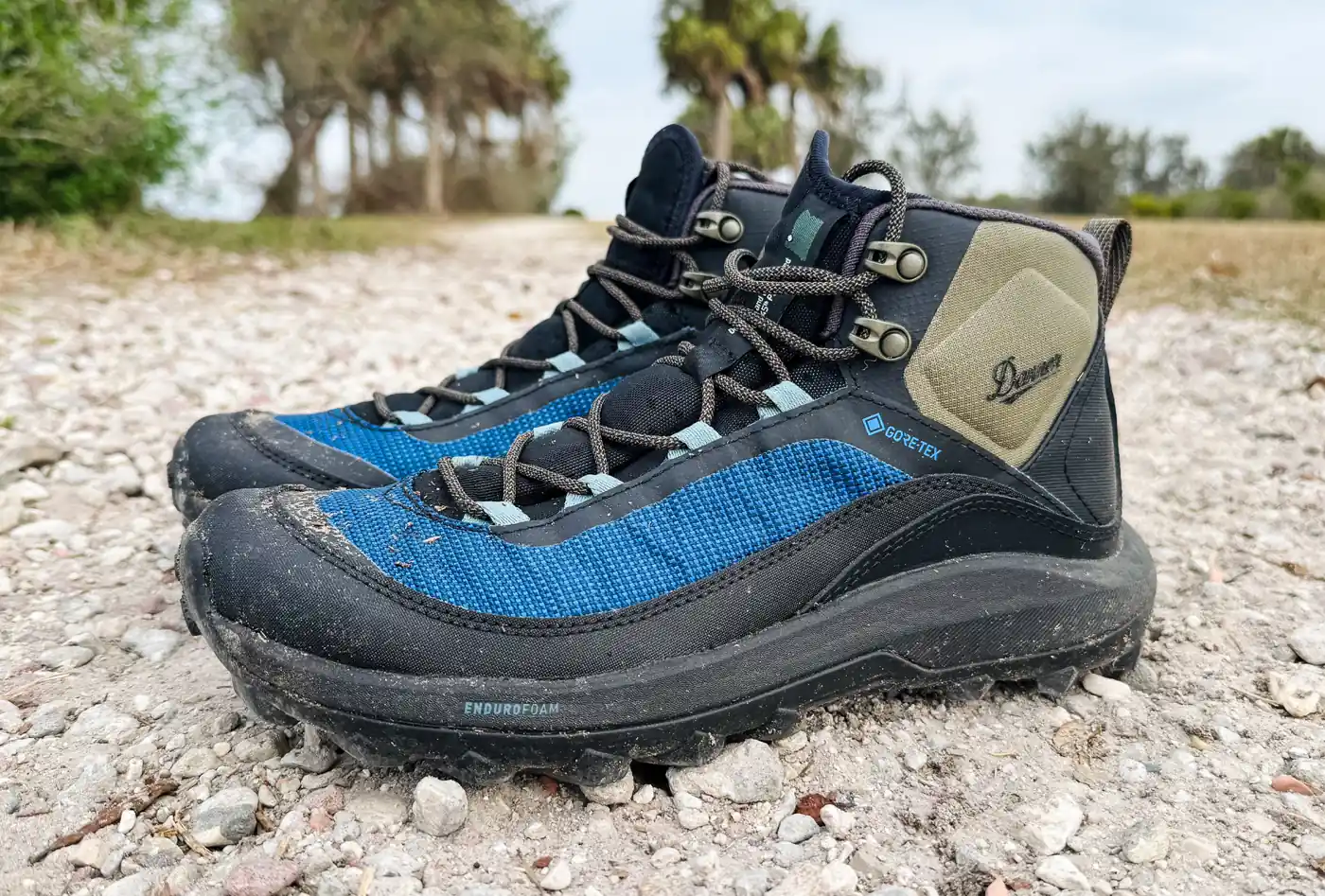



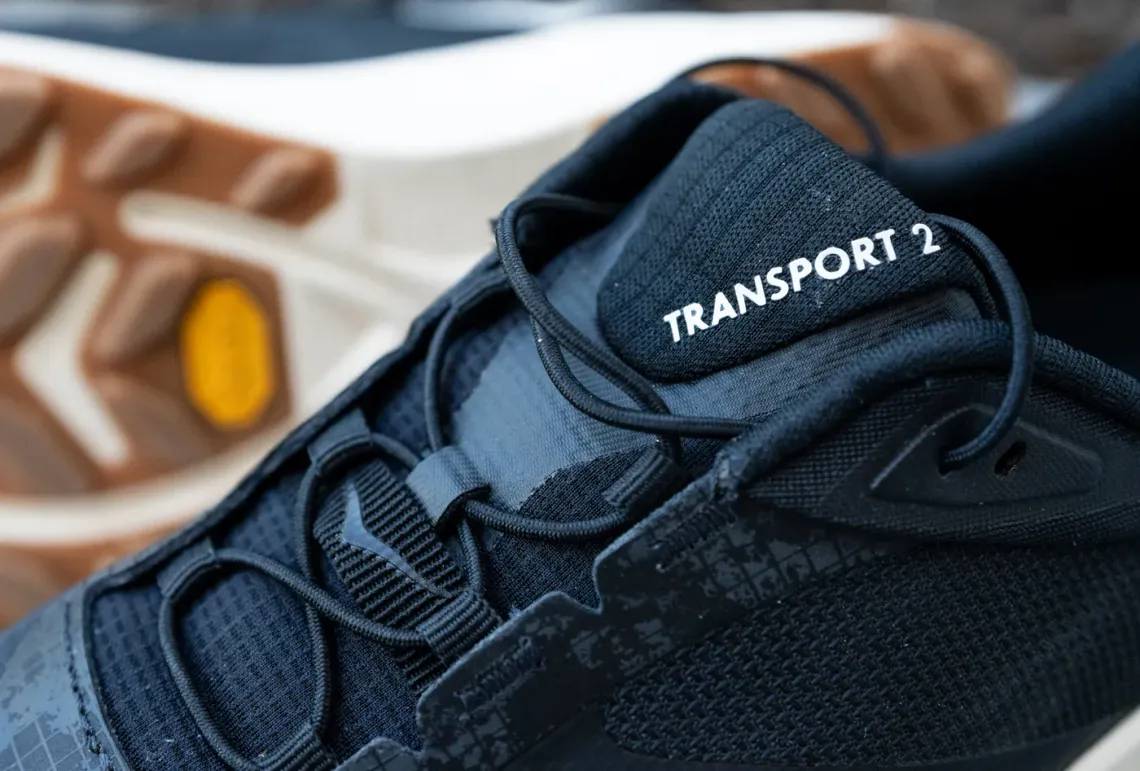

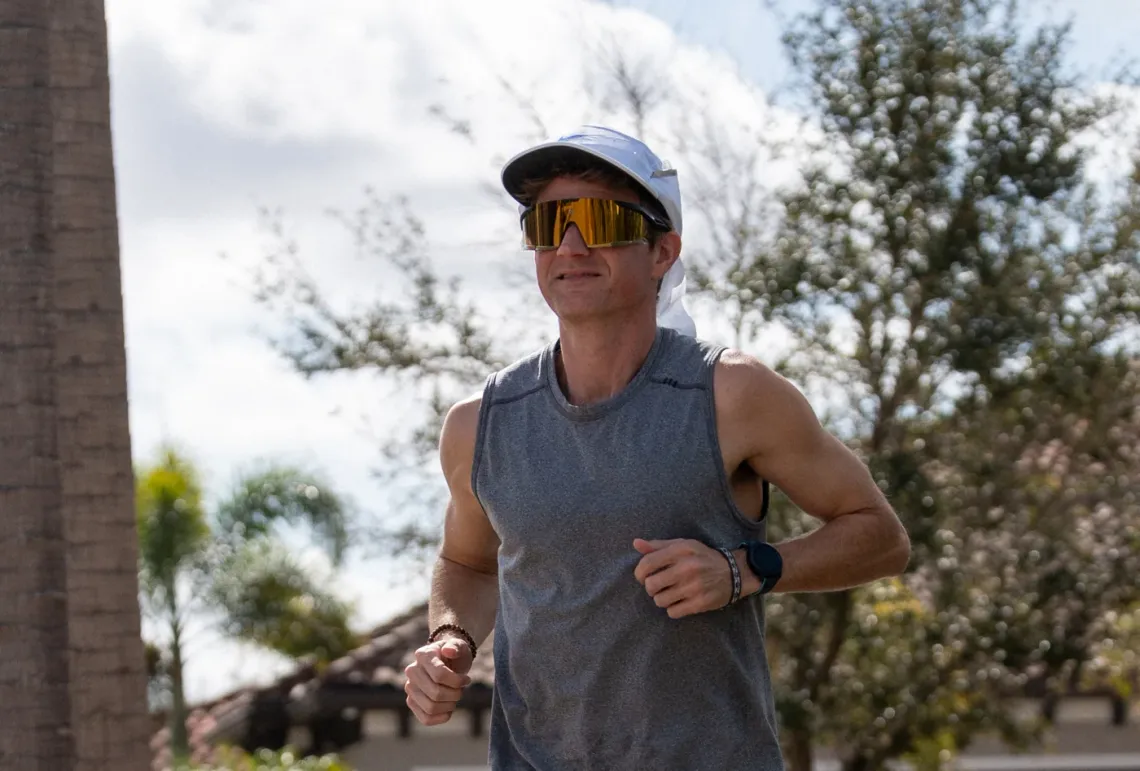

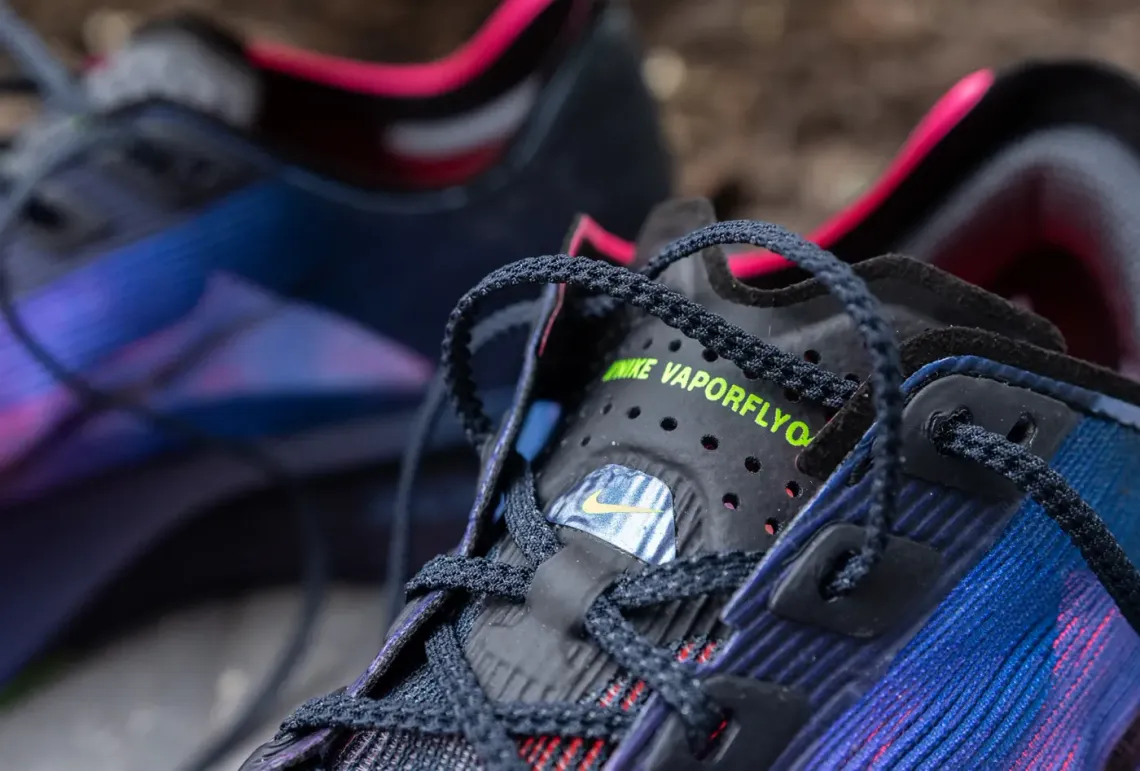

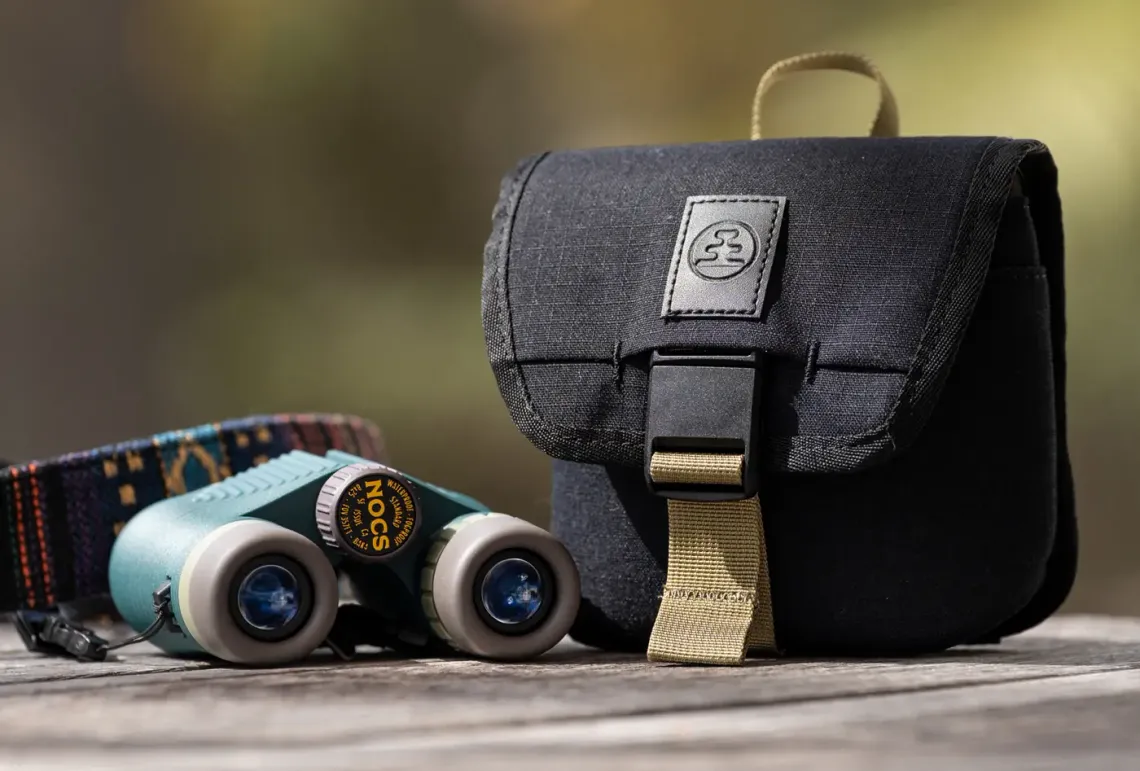
Member discussion